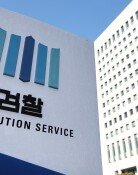Supreme Court orders Japanese firm to provide compensation
Supreme Court orders Japanese firm to provide compensation
Posted October. 31, 2018 07:57,
Updated October. 31, 2018 07:57
South Korea’s Supreme Court on Tuesday ordered a Japanese steelmaker Nippon Steel & Sumitomo Metal Corp. (NSSM) to pay each plaintiff, victims of wartime forced labor and unpaid work, 100 million won in compensation. The court ruled that the former laborers’ right to reparation was not terminated by a 1965 bilateral treaty signed between South Korea and Japan to settle colonial-era issues and normalize diplomatic ties, rejecting claims by the Japanese steelmaker on the ground of the principle of good faith.
The top court’s ruling has provided a closure to a long-pending damages suit against the Japanese firm that began 13 years ago in February 2005. Sadly enough, of the four plaintiffs in Tuesday’s suit, Lee Choon-shik, 98, is the only surviving victim. The Supreme Court under the leader ship of former Chief Justice Yang Sung-tae had delayed the ruling for five years, and reportedly consulted with the presidential office of Cheong Wa Dae. Whether the consultation was to use the trial as a bargaining chip in dealings with the top office or to listen to the administration’s view on the diplomatic issue must be revealed through an independent investigation.
As soon as the verdict was out Tuesday, Japan immediately expressed regret and summoned Seoul’s envoy in Tokyo to lodge a protest. Japan’s Foreign Minister Taro Kono said that “Japan strongly demands that the Republic of Korea take appropriate measures, including immediate actions to remedy such breach of international law,” indicating that his country would consider taking the case to the International Court of Justice (ICJ). However, Japan should realize that its reactions lacking in sincere reflection or an apology for its mistakes in the past would only lead to neighboring countries’ heightened concerns about Tokyo increasingly turning rightist.
The already soured ties between South Korea and Japan are likely to get worse with the latest verdict. It seems that not a day goes by without an issue disrupting the bilateral relationship, including disputes over an agreement on comfort women and controversies surrounding the Japanese vessel’s Rising Sun flag at a naval review held in Jeju. Conflicts may grow next year when South Korea marks the 100th anniversary of the March 1st Independence Movement and the establishment of the provisional government. It is true that when it comes to issues with Japan, the country has been swayed rather by politics and short-lived public sentiment, not by diplomacy or long-term national interest. Yet, both countries are well aware of damages that would be done by frozen ties. The government’s diplomatic skills to manage conflicts and mend ties with Tokyo at the same time are more important now than ever before.




![“한동훈, 정치생명 걸고 무소속 출마해 평가받는 것 고려할만”[정치를 부탁해]](https://dimg.donga.com/c/138/175/90/1/wps/NEWS/IMAGE/2026/01/19/133186982.1.jpg)


